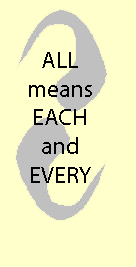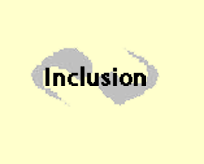|
Action Assessment
|
||||
|
The fundamental questions for teacher preparation programs, corporations, community organizations, and schools are; what will we learn that helps us build learning environments and how does the competencies of the master’s impact the learners they enlighten? We are resisting a fragmentary sort of description on particular parts and looking for an emerging reality of cooperating outcomes that form the picture of the whole (Del Re, 2000). Action assessment describes the formation of processes that result in the desired direction. Participatory Action Assessment is being proposed as a method of assessment for schools, corporations, and communities. This alternative style of assessment uses a three-part process of investigation, education and action in order to understand the impact of the project while sharing the creation of social knowledge (Maguire, 1987). The process is aligned with the current organizational tools and courses of action. Past experience taught us that the creation of reports, mainly through the use of surveys, generated methodologies and teased out meaning but generated little guidance for effective decision making (Denzin, N & Lincoln, Y. eds1994). According to Rist as reported in Denzin & Lincoln (1994) an evaluation focused on technical adequacy of the project will drive attention away from practical utilization and into quick obscurity. The participatory Action Assessment process being developed is aimed at creating value for individual stakeholders and whole communities. In order to accomplish the creation of value, Responsive Evaluation (Patton, 1990), which humanizes the evaluation process by placing emphasis on the stakeholders concern, is serving as a model. In order to develop first-rate strategies stakeholders must be able to project themselves into a future where struggling with internal pressures to change is the norm (Sarason, 1993). This struggle emerges when educators, managers, and organizors use and understand systems thinking. A general reflex or habit of conceiving reality in terms of interdependencies, interactions and sequences promotes systems thinking (Scholtes, 1998). Coupling Systems thinking with Responsive Evaluation breaks traditional practices that restrict student-centered, dialogic, and participatory assessment (Shor, Ira, 1992). Making use of the qualitative processes of Responsive Evaluation and systems thinking forms the foundation for the Participatory Action Assessment method. Rarely does one evaluator have enough knowledge or experience to understand everything that goes on in a process (Scholtes, Peter, 1988). A group of people pooling their talents, skills and knowledge is established in the surrounding community. The community is a diverse grouping of stakeholders. The diversity is emphasized in order to enhance the complexity and meaning as connections, interdependencies and outcomes emerge (Del Re, 2000). The resulting human force will further develop the methodology, contribute to participant stakeholders observation and data collection, coordinate data analysis for meaning, and facilitate improvements. This spiral shaped method continues indefinitely as a technique of assessment and continual improvement.
|
||||
Dr. Thomas Neuville, Associate Professor
Special Education, Gerhart Hall
717.871.4880
Dr. Neuville's Site Dr. Neuville's Site Dr. Neuville's Site Dr. Neuville's Site Dr. Neuville's Site Dr. Neuville's Site Dr. Neuville's Site Dr. Neuville's Site Dr. Neuville's Site Dr. Neuville's Site Dr. Neuville's Site Dr. Neuville's Site


